When a friend recently asked us what song has the longest association with The Flood, we had to stop and think. Several old-timers are still in the band’s repertoire.
The Carter Family-inspired “Solid Gone,” for instance, has been in our collective consciousness all along, going way back to when David Peyton and Charlie Bowen were just a modest little duo in 1973.
Uncle Dave Macon’s “Way Downtown” has legs too; we have tapes from 1975 on which Charlie and Dave are doing that one with Roger Samples and Joe Dobbs the first time the new configuration began calling itself “The 1937 Flood.”
Regularly Reborn Song
But the longest-lived Floodified tune that we have the most fun with — the one that has a rebirth with every new incarnation of the band — is the hokum classic “Jug Band Music,” which, as reported here earlier, we started doing in 1976.
We learned the tune from a 1960s recording by our heroes, the Jim Kweskin Jug Band. And they learned it from a 1934 recording by everybody's heroes, The Memphis Jug Band, headed up by the legendary Will Shade.
Not unlike The Flood itself, the Memphis Jug Band didn't like to easily categorize its music, recording a wild mixture of ballads, dance tunes, knock-about novelty numbers, blues and even their own special take on pop tunes of their day.
This particular tune Kweskin called simply "Jug Band Music," but when it was originally recorded on Nov. 8, 1934, and released on Vocalion and Okeh, Shade called his composition “Jug Band Quartette.”
Jug Band Craze
Among hokum performers to spring up in Memphis in the 1920s, the Memphis Jug Band was the most recorded, releasing more than 100 sides between 1927 and 1934 (rivaled only by another long-time Flood favorite, Gus Cannon's Jug Stompers, incidenally).
The jug band craze started in Louisville around 1905. By 1910 there were a number of bands active in that area, including string bands and jazz groups that added a jug player just to cash in on the craze.
In 1925, Will Shade first heard the records of a Louisville jug band called the Dixieland Jug Blowers. He quickly convinced a local Memphis musician called "Lionhouse" to switch from blowing an empty whiskey bottle to a gallon jug, added Tee Wee Blackman on guitar and Ben Ramey and the Memphis Jug Band was born.
Shade played guitar, harmonica and "bullfiddle" (a stand up bass made from a garbage can, a broom handle and a string). It was a loose-knit outfit with a constantly changing membership.
Sounds So Sweet…
They have a good five or six years, but by the mid 1930s, Memphis was in decline. Known as the "murder capital of the world," it was rife with corruption. Local politicians tried to combat the problems by closing down the gambling houses and brothels.
That crackdown also signaled the end of the jug band era, because it removed many of the venues where that rowdy music had thrived. For that reason, when Shade and the guys trouped to Chicago in November 1934, they probably knew it was to be their last recording session.
It was at that moment that this beloved jug band anthem was recorded, their celebratory lyrics a elegiac tribute to themselves, to their fellow musicians, and, most of all, to the music that even now sounds “so sweet … hard to beat.”
Our Take on the Tune
Every configuration of The Flood, from 1976 to the present, has done its own variation of this happy song, each one, in its way, a loving tribute to our heroes. (As reported here earlier, the song was even central to our video debut on YouTube back in 2008.)
This latest rendition, recorded at a recent gig, offers wonderful solos and fills by everyone in the band. Even the grins and winks seem to come through in the audio.

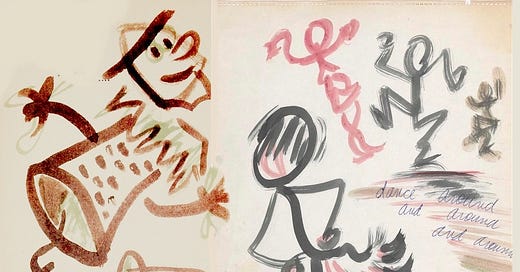





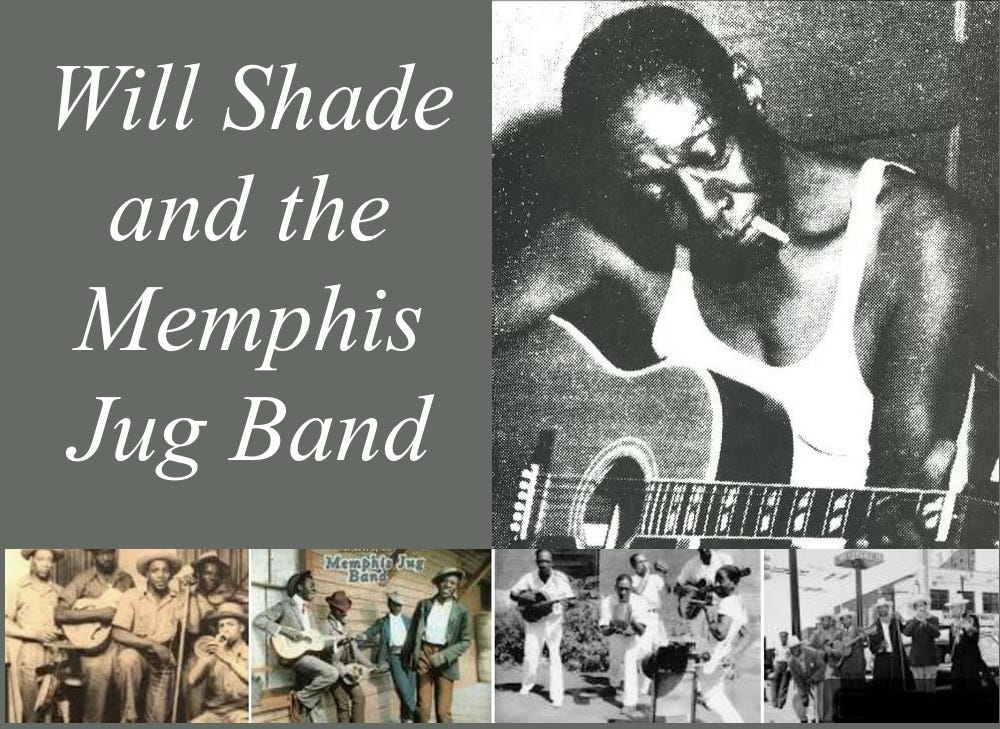

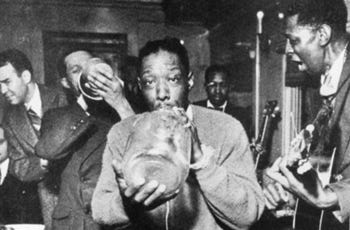

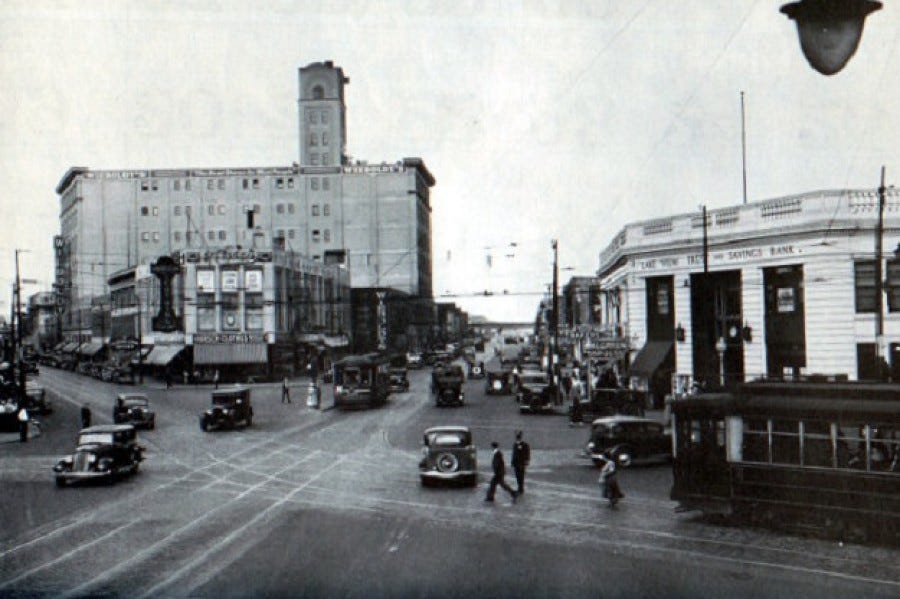
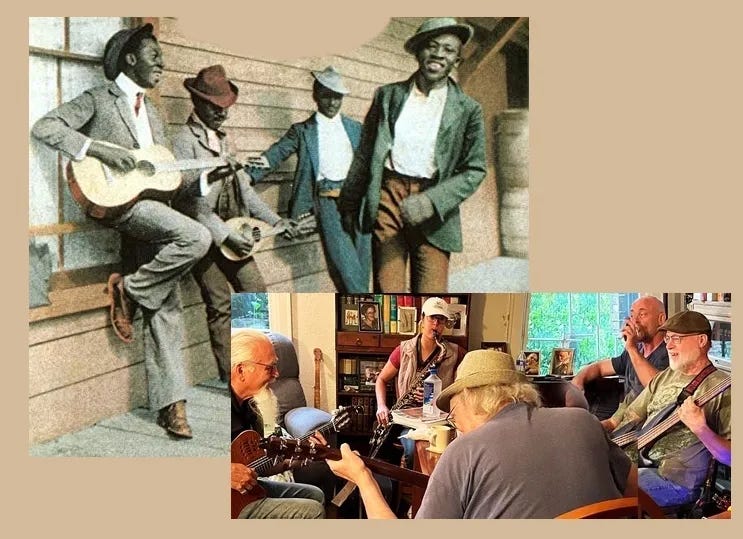







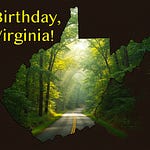

Share this post